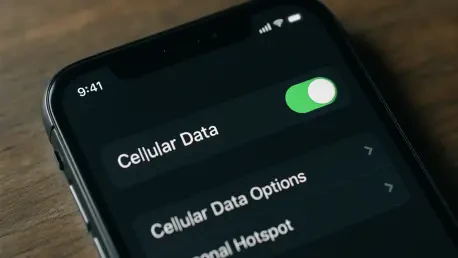The ever-evolving landscape of digital privacy and data protection has taken a significant turn with the conclusion of a profound legal battle involving tech giant Google. A recent ruling by a California court mandated that Google pay $314 million for improperly using Android users’ cellular data without explicit consent. This case initially surfaced in August 2019 as a class-action lawsuit against Google, alleging that the company exploited users’ cellular data to transmit information even when devices were idle, bypassing the need to wait for Wi-Fi connectivity. According to the plaintiffs, this practice was in violation of California law, as Google continued to conduct data transfers while its properties were active in the background, often unbeknownst to users who had no open Google apps at the time.
Details of the Case and Legal Implications
Cellular Data Exploitation Allegations
One of the core issues addressed by the plaintiffs was that Google utilized cellular data networks for non-essential data transfers, which they argued could have been deferred until a Wi-Fi connection was available. An example provided involved a Samsung Galaxy S7 phone, where 94% of the daily 8.88 MB data transfer was to Google. This data mainly comprised log files packed with system metrics. Plaintiffs contended these transfers were not time-sensitive and could have placed undue financial burdens on users, who might face higher cellular data costs as a result. It was suggested that Google’s choice to use cellular data over Wi-Fi contradicted fair data usage principles.
The ruling highlighted a key comparison between systems, revealing a 2018 experiment showing a marked difference in data usage habits between Android and Apple’s iOS when devices appeared inactive. The disparity illustrated iOS’s stronger control mechanisms that permitted users greater authority over passive data transfers. As the trial proceeded, the jury supported the plaintiffs’ views and determined that Google’s passive data activities unjustifiably shifted the burden of costs and convenience to users for the company’s benefit.
Google’s Position and Legal Response
In response to the court’s unfavorable ruling, Google disclosed plans to appeal the decision, asserting that such data transfers are vital for ensuring the security and efficiency of Android devices. The company emphasized that these transfers are transparently explained in its terms of use, with user consent being an integral requirement. Despite this, the judgment suggests that the existing disclosure mechanisms were inadequate or unclear for some users.
This ruling comes amid heightened legal scrutiny, a climate where Google recently settled two major lawsuits in Texas amounting to $1.4 billion involving unlawful practices related to user location tracking and the retention of facial recognition data. Such precedents signal a broader movement of increasing vigilance over tech giants’ data practices and a push for ensuring that user consent is genuinely informed and respected in digital operations.
Industry-Wide Ramifications
Increasing Accountability in Data Privacy
Recent cases underline a growing trend in the tech industry towards greater accountability and transparency regarding data privacy and user consent. Companies are increasingly being held accountable for ensuring user information is not only gathered transparently but also in a manner that respects users’ rights to control their data. This is particularly evident in light of Google’s recent legal challenges and the ongoing appeal by Meta against an EU ruling regarding ad personalization. These legal battles illustrate a broader clash between technological advancement and user privacy, a theme strongly resonant in today’s data-driven world.
Instances like these empower users and prompt companies to reconsider and refine their data handling practices. Observers speculate that such legal confrontations could catalyze further legislative action globally, potentially leading to stricter regulations. New standards might require companies to offer clearer options for users to opt-out of data transfers whenever feasible.
Future Considerations and Adjustments
For tech companies, maintaining a balance between innovation, service performance, and user privacy will remain a central challenge. The Google case sets a precedent that companies cannot solely rely on blanket end-user agreements to justify data usage but must ensure users have clear, comprehensible choices in how their data is employed. This scenario raises important considerations for companies in adapting their business models to avoid similar legal entanglements.
The evolving legal landscape suggests a shift towards more user-centric data governance, encouraging tech firms to foster trust through transparency and improved user control mechanisms. These developments portray an industry on the cusp of transformation guided by heightened consumer expectations and legislative directives aimed at protecting personal data integrity and security.
Navigating a Shifting Landscape
The plaintiffs claimed that Google opted to use cellular data networks rather than deferring non-essential data transfers until a Wi-Fi connection was accessible. For instance, 94% of the daily 8.88 MB data transferred from a Samsung Galaxy S7 was directed to Google, predominantly consisting of log files and system metrics. They argued these transfers weren’t time-sensitive, potentially leading to higher cellular data costs for users. This approach was seen as contrary to fair data usage, possibly imposing undue financial burdens on users.
The ruling highlighted disparities in data management between systems, noting a 2018 experiment illustrating differences in how Android and Apple’s iOS handled passive data during perceived inactivity. iOS demonstrated stronger control, granting users more authority over passive data transfers. Ultimately, the jury sided with the plaintiffs, concluding Google’s passive data practices shifted costs and convenience burdens to users for its gain, contradicting fair usage principles.









